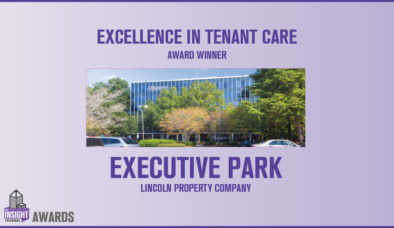Climate change and how it might affect CRE in the future
While often a political hot-button, climate change has the potential for massive effects on the commercial real estate industry. The past couple of years have seen rising sea levels, larger storms and and increased emphasis on lowering the carbon footprint of commercial areas. Governments are beginning to create policies that will affect both developers and owners. To prepare yourself for possible issues, let’s look at a few of the major issues concerning climate change and how they might affect our industry.
Extreme Weather
According to a report from the Union of Concerned Scientists, approximately 14,000 coastal commercial properties are at risk of inundation by 2045. The same report predicts sea levels rising 1.6 feet in a best-case scenario. Rising sea levels and increased danger of hurricanes has made coastal properties even more at risk. Ocean-related weather is not the only risk. River-flooding has become more common. According to the National Climate Assessment, heavy rain events have increased 37 percent since the 1950s. Just this year, federal officials warned 25 states that they could see a flood risk in May. All of this is not to scare anyone from owning a property or leasing one, it is information to keep in mind in the future. Developments should consider extreme weather possibilities in their construction and location scouting. Risk assessment and insurance systems are also changing with the recent weather. FEMA is releasing a new risk rating system that includes updated flood plain maps. This may be something to pay attention to if your area is at risk. Property resiliency might also be a major consideration moving forward, as people demand buildings that will last longer and efficiently.
Climate Change-Based Laws
Climate change has been a major topic on both a state and federal level for decades. Recently, tighter regulations have been imposed to accelerate progress in certain areas. For example, New Yorks’s Climate Mobilization Act “requires that buildings exceeding 25,000 gross square feet reduce their greenhouse gas footprint starting in 2022 and each year thereafter so as to meet an established sliding scale of emission limits.” Closer to home, Atlanta’s “Resilient Atlanta” strategy aims to hit a 100% clean energy target and impose city-wide housing resilience standards. Many of these propositions are cropping up across the country, which means CRE professionals need to prepare for impending code changes, energy restrictions and new standards for air, water and lighting.
Investment Shifts
As stated above, coastal properties are at the most danger for flooding, rising sea levels and extreme weather. This is not new, but the increased predicted risk may mean less investment in the coastal areas. Building restrictions in coastal towns are likely to get stricter, so an overall decrease in construction may be seen in the future. Overpopulation is also an environmental concern. With almost 200,000 people entering the country a month between births, deaths and immigration, cities are going to have to make conscientious choices with how they handle the new influx. Smog levels are up and rampant urbanization may be curtailed by city regulations. Commercial real estate professionals are going to need to make future-thinking decisions about what and where to build based on the environmental effects of new construction.
Environmental Building Considerations
With Gen Z and millennial generations reaching the age of being major economic deciders, CRE professionals need to consider their needs and interests moving forward. Both generations are generally more environmentally concerned. This means they will be attracted to properties with health amenities, energy efficient water and lighting, and lower carbon footprints. Businesses and possible tenants are beginning to take these factors in as well, adapting their office lifestyle to the needs of millennials and Gen Z. These generations want to actively reduce the effects of climate change meaning they aim to drive less, produce less waste and use sustainable products. CRE professionals both on the development and leasing side need to consider these trends in order to stay competitive in the market. While we don’t know exactly what the future of our climate looks like and the effects it may have, it is important to stay informed and researched in order to properly prepare for any surprises, legislative changes and market trends. Getting caught off guard may lead to more extensive and expensive fixes than preparation would.









